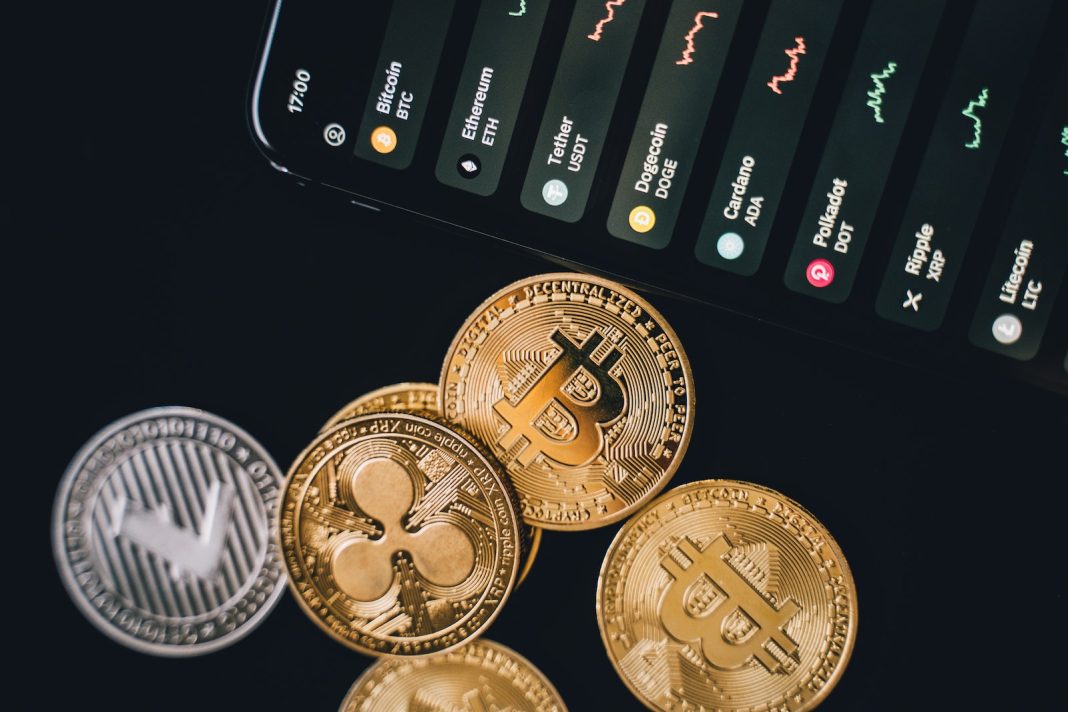Cryptocurrency has become a popular investment option in recent years, with Bitcoin leading the way. If you’re interested in getting involved in the world of digital currencies, it’s important to understand the basics and know how to navigate the cryptocurrency market. In this guide, we will walk you through the steps of obtaining cryptocurrency, from choosing a crypto exchange to investing and storing your digital assets.
1. Understanding Cryptocurrency
What is Cryptocurrency?
Cryptocurrency is a digital or virtual form of currency that uses cryptography for security. Unlike traditional currencies issued by governments, cryptocurrencies are decentralized and operate on a technology called the blockchain. The blockchain is a distributed ledger that records all transactions made with a particular cryptocurrency.
Why Invest in Cryptocurrency?
There are several reasons why people choose to invest in cryptocurrency. Firstly, cryptocurrencies have the potential for high returns. Bitcoin, for example, has experienced significant growth over the years, making early investors incredibly wealthy. Secondly, cryptocurrencies offer a decentralized and secure way to transfer value globally. The blockchain technology behind cryptocurrencies ensures transparency and immutability of transactions. Lastly, investing in cryptocurrencies allows individuals to diversify their investment portfolios and participate in the growing digital economy.
2. Choosing a Crypto Exchange
What is a Crypto Exchange?
A crypto exchange is a platform that facilitates the buying and selling of cryptocurrencies. It acts as an intermediary between buyers and sellers, providing a secure marketplace for transactions. When choosing a crypto exchange, it’s important to consider factors such as security, ease of use, available cryptocurrencies, and fees.
How to Select a Reliable Crypto Exchange?
When selecting a reliable crypto exchange, there are a few key factors to consider. Firstly, you should research the security measures implemented by the exchange to protect users’ funds. Look for exchanges that use two-factor authentication, cold storage, and have a good track record of security. Secondly, consider the user interface and ease of use. You want to choose an exchange that is intuitive and user-friendly, especially if you are a beginner. Lastly, compare the fees charged by different exchanges. Some exchanges have high trading fees, while others offer competitive rates. Choose an exchange that suits your trading style and budget.
3. Buying Cryptocurrency
Steps to Buy Cryptocurrency
Once you have selected a reliable crypto exchange, you can proceed to buy your desired cryptocurrency. The exact steps may vary slightly depending on the exchange, but generally, the process involves the following:
- Create an account on the crypto exchange.
- Complete the account verification process.
- Fund your account using a supported payment method.
- Select the cryptocurrency you want to buy.
- Specify the amount you want to purchase.
- Review the transaction details and confirm the purchase.
Best Cryptocurrencies to Buy
There are numerous cryptocurrencies available for investment, each with its own unique features and potential for growth. While Bitcoin remains the most well-known and widely accepted cryptocurrency, other popular options include Ethereum, Litecoin, Ripple, and Bitcoin Cash. It’s important to conduct thorough research and consider factors such as market capitalization, technology, and community support before investing in any cryptocurrency.

4. Investing in Cryptocurrency
Strategies for Investing in Cryptocurrency
Investing in cryptocurrency requires careful consideration and strategy. Here are a few strategies to consider:
- Long-term Investing: This strategy involves buying and holding cryptocurrencies for an extended period with the expectation of significant growth in the future. It requires patience and belief in the long-term potential of the chosen cryptocurrency.
- Short-term Trading: For those looking to capitalize on short-term price fluctuations, short-term trading involves buying and selling cryptocurrencies within a shorter time frame. This strategy requires active monitoring of the market and technical analysis skills.
- Dollar-Cost Averaging: Dollar-cost averaging involves investing a fixed amount of money at regular intervals, regardless of the cryptocurrency’s price. This strategy helps reduce the impact of market volatility and allows for consistent investment over time.
Long-term vs Short-term Investments
Deciding between long-term and short-term investments depends on your risk tolerance, investment goals, and market conditions. Long-term investments offer potential for higher returns but require a long-term commitment and patience. Short-term investments, on the other hand, can be more volatile and carry higher risks but offer the possibility of quick profits.
5. Storing Cryptocurrency
Types of Cryptocurrency Wallets
Once you have purchased cryptocurrency, it’s important to have a secure place to store it. There are several types of cryptocurrency wallets available:
- Hardware Wallets: Hardware wallets are physical devices that store your cryptocurrency offline. They offer the highest level of security as they are not connected to the internet when not in use.
- Software Wallets: Software wallets are applications or programs that can be installed on your computer or mobile device. They offer a convenient way to access and manage your cryptocurrency but may be more vulnerable to hacking.
- Paper Wallets: Paper wallets involve printing the private keys associated with your cryptocurrency and storing them on a physical piece of paper. It’s a secure, offline method of storing cryptocurrency.
How to Secure Your Cryptocurrency
Securing your cryptocurrency involves implementing best practices to protect your wallet and funds. Here are a few tips:
- Use strong passwords: Choose a password that is unique, complex, and hard to guess.
- Enable two-factor authentication: Two-factor authentication adds an extra layer of security by requiring a second form of verification, such as a code sent to your mobile device.
- Regularly update your software: Keep your wallet and devices up to date with the latest security patches and software updates.
- Backup your wallet: Regularly backup your wallet’s private keys or seed phrase to ensure you can recover your funds in case of loss or theft.
6. Risks and Challenges
Volatility in Cryptocurrency Market
The cryptocurrency market is notorious for its volatility. Prices can fluctuate dramatically within a short period, leading to potential gains or losses. It’s important to be aware of this volatility and only invest what you can afford to lose. Additionally, staying updated with market news and trends can help you make informed investment decisions.
Security and Scams
Security risks and scams are prevalent in the cryptocurrency space. It’s crucial to be cautious and vigilant when dealing with cryptocurrencies. Look out for phishing attempts, fake ICOs (Initial Coin Offerings), and scams promising unrealistic returns. Always verify the credibility of the platform or project before investing your hard-earned money.
7. Diversifying Your Crypto Portfolio
Investing in Multiple Cryptocurrencies
Diversification is key to managing risk and maximizing potential returns. By investing in multiple cryptocurrencies, you spread your risk across different assets. Look for cryptocurrencies with different use cases, technologies, and market capitalizations to create a well-rounded portfolio.
Choosing Alternative Coins (Altcoins)
Bitcoin may be the most well-known cryptocurrency, but there are thousands of other altcoins worth considering. Research and analyze different altcoins to identify promising projects with strong teams, innovative technologies, and potential for growth.

8. Selling Cryptocurrency
How to Sell Cryptocurrency
Selling cryptocurrency is a straightforward process on most crypto exchanges. The general steps include:
- Login to your crypto exchange account.
- Select the cryptocurrency you want to sell.
- Specify the amount you want to sell.
- Review the transaction details and confirm the sale.
- Transfer the funds to your linked bank account or chosen payment method.
Profit-Taking Strategies
Profit-taking strategies involve deciding when and how much cryptocurrency to sell to realize your profits. Some common strategies include:
- Partial Selling: Selling a portion of your holdings while keeping the remaining amount invested for potential future growth.
- Scaling Out: Gradually selling your cryptocurrency holdings over time to lock in profits at different price levels.
- Stop-Loss Orders: Placing stop-loss orders to automatically sell your cryptocurrency if it reaches a certain price, protecting your profits and minimizing losses.
9. Taxation and Legal Considerations
Cryptocurrency Taxation Rules
Taxation rules for cryptocurrencies vary from country to country. It’s important to consult with a tax professional or research the tax regulations in your jurisdiction to ensure compliance. Keep records of your cryptocurrency transactions, including purchases, sales, and any applicable fees, to accurately calculate your tax obligations.
Legal Regulations for Cryptocurrency
The legal landscape surrounding cryptocurrencies is still evolving in many countries. Stay informed about the legal regulations governing cryptocurrencies in your region to avoid any legal issues or compliance failures. Be cautious and follow the guidelines provided by regulatory authorities to ensure your activities are lawful.
10. Resources for Further Learning
Books, Courses, and Websites on Cryptocurrency
If you’re eager to learn more about cryptocurrency, there are various resources available to expand your knowledge. Books such as “Mastering Bitcoin” by Andreas M. Antonopoulos and “Cryptocurrency: How Bitcoin and Digital Money are Challenging the Global Economic Order” by Paul Vigna and Michael J. Casey offer in-depth insights into the world of cryptocurrencies. Online courses and websites like CoinMarketCap, CoinDesk, and Investopedia provide valuable information and updates on the cryptocurrency market.









